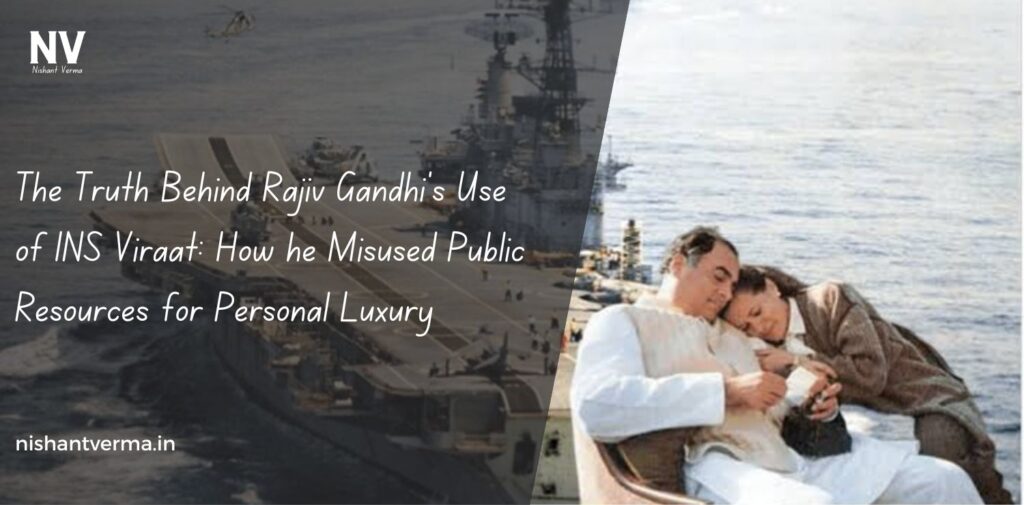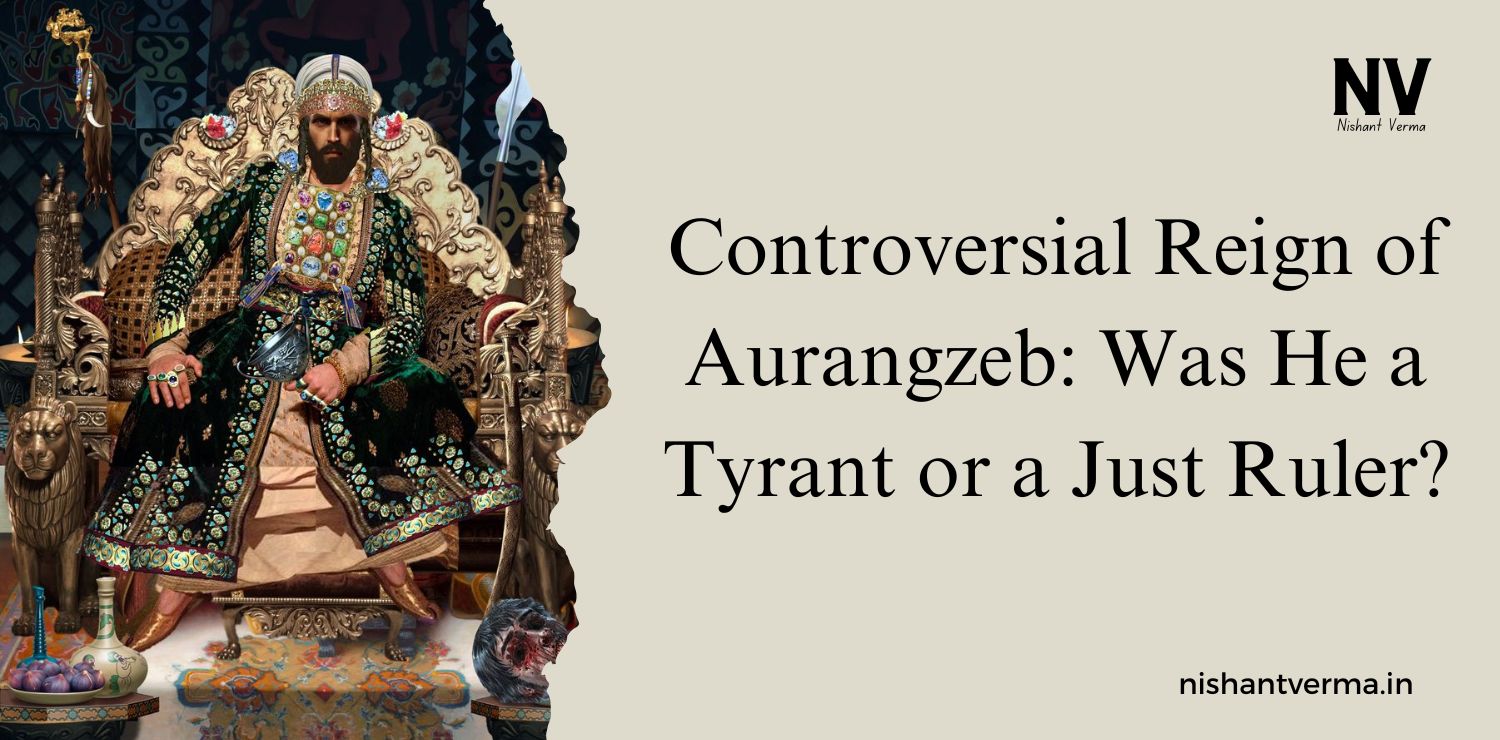When it comes to political families that have shaped India’s history, the Nehru-Gandhi dynasty often takes center stage. However, it’s crucial to remember that such a position comes with a responsibility to uphold the dignity of public office. Unfortunately, the line between personal benefit and public duty was blurred time and again by this political family. One such incident that stands out is the blatant misuse of the Indian Navy’s pride, Use of INS Viraat, by former Prime Minister Rajiv Gandhi for personal leisure , a shocking violation of protocol and misuse of national resources.
The Viraat Controversy: When the Nation’s Asset Became a Personal Yacht
INS Viraat, the country’s naval aircraft carrier, was supposed to safeguard India’s maritime interests and maintain the nation’s security. Yet, it was repurposed by Rajiv Gandhi and his family for what can only be described as a luxury vacation. Reports claim that in 1987, Rajiv Gandhi, along with his wife Sonia Gandhi and others, used INS Viraat to travel to an exclusive island in the Lakshadweep region for a private holiday.
This was not a mere matter of convenience or an instance of bending a few rules. It was a flagrant disregard for national resources, as a significant part of the navy’s fleet, along with armed personnel, was utilized to cater to the whims of a political family. Essentially, a naval asset, meant for defending the nation, was reduced to a personal yacht.
A Disservice to the Nation: How Much Did This “Vacation” Cost India?
The logistics involved in deploying INS Viraat for Rajiv Gandhi’s vacation were immense and costly. Fighter aircraft, naval helicopters, and other essential equipment were re-routed and stationed at the location to provide security for the then-Prime Minister’s holiday. The amount of manpower and resources diverted for this trip not only resulted in financial waste but also compromised national security.
Why should a warship, manned by soldiers prepared to put their lives on the line, be used for a Prime Minister’s leisure? The answer lies in the Nehru-Gandhi family’s longstanding history of treating public assets as their own property. It’s a behavior rooted in a sense of entitlement, where the lines between serving the nation and serving oneself are easily crossed.
Misusing Public Office: An Unfortunate Legacy of the Gandhi-Nehru Dynasty
Unfortunately, this was not an isolated incident but part of a disturbing trend. The Gandhi-Nehru family has often been accused of exploiting their position for personal gain, using public funds and national resources to maintain their extravagant lifestyle. The Viraat incident is merely a high-profile example of how the political elite has misused their authority.
From government bungalows being turned into personal properties to public events being staged like private celebrations, the Gandhi-Nehru family has repeatedly shown a disregard for the sanctity of public office. Such instances are not only a betrayal of the trust placed in them by the citizens of India but also a misuse of the taxpayers’ money.
The High Cost of Misusing Public Assets: Use of INS Viraat
To put things in perspective, every rupee spent on fuel, logistics, and manpower during Rajiv Gandhi’s so-called vacation was borne by the taxpayers. Imagine the number of villages that could have been electrified, the number of children that could have been educated, or the healthcare facilities that could have been set up with those funds. Instead, they were spent on ferrying a family around for leisure purposes.

When you misuse public funds and assets, it’s not just about the money spent , it’s about the opportunities lost. The resources wasted on one person’s luxury could have uplifted the lives of thousands. Such disregard for public welfare only proves that the Gandhi-Nehru dynasty never truly prioritized the welfare of the common man.
An Entitled Mindset: The Root of the Problem
Why did Rajiv Gandhi, and others in the family, believe they had the right to use INS Viraat or other national assets for personal use? The answer is entitlement , a belief that the nation’s assets were at their disposal simply because they were at the helm. This mindset not only undermines democracy but also sets a dangerous precedent where public officials can exploit their power without facing consequences.
This sense of entitlement and misuse of power trickles down into the very fabric of political culture, encouraging others to follow suit. It creates a culture of corruption and self-serving governance, where the interests of a few are placed above the welfare of the many.

Learning from the Past: Holding Leaders Accountable
In a democracy, leaders are meant to serve, not to rule. The INS Viraat episode should serve as a stark reminder of the consequences of unchecked power. The fact that Rajiv Gandhi faced no significant repercussions for this incident highlights a systemic problem within our political and judicial framework , the lack of accountability for those at the top.
It’s high time that we, as citizens, demand transparency and accountability from our leaders. Political power is a responsibility bestowed by the people and should be exercised in the service of the nation, not personal gain. Misusing public resources, be it funds, assets, or manpower, must be met with strict punishment to ensure that such behavior is not repeated in the future.

Conclusion: The Need to Move Beyond the Gandhi-Nehru Era
The misuse of INS Viraat by Rajiv Gandhi is not just an incident but a symbol of the larger problem that has plagued Indian politics for decades , the sense of entitlement and misuse of power by the political elite. It’s time for India to move beyond this legacy and embrace leaders who genuinely care for the people and the nation.
The Nehru-Gandhi dynasty must be held accountable for its actions, and future generations must learn from these mistakes. The nation deserves leaders who prioritize public welfare over personal luxury, leaders who serve with humility rather than rule with arrogance. Only then can we hope to build a truly democratic and progressive India.
As citizens, it’s up to us to hold our leaders to the highest standards of integrity and ensure that public office is used for the benefit of the nation, not for personal indulgence. The Gandhi family’s misdeeds should not be forgotten, but remembered as lessons , lessons that remind us never to let political dynasties undermine the spirit of democracy again.




